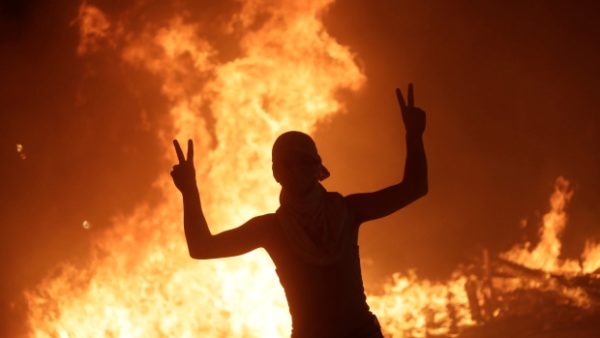
Thousands of Lebanese took to the streets Thursday night in Tripoli , Tyre and Baalbeck forcing the government to reverse its decision on an unpopular tax it had approved just a day earlier on internet-based phone calls over services such as WhatsApp.
Telecommunications Minister Mohamed Choucair said the $0.20 per day fee to use the popular services would not go into effect, according to local media. He said Prime Minister Saad Hariri had ordered the reversal in the decision taken earlier
Beirut witnessed the biggest protest , where thousands gathered in Riad al-Solh Square near the Grand Serail, the seat of govenrment. Many said it was their first time participating in a protest.
The decline in telecom revenues seems seems to be behind the new tax. Revenues have been falling about 33% every year .
The Telecommunications Ministry attributed the decline to the use of free online calling applications including WhatsApp, Viber, Skype, Facebook Call and other.
At the Cabinet meeting Wednesday, the ministers agreed to impose a 20 cents fee per day for each WhatsApp subscriber or any similar application , resulting in a total charge $6 per month for the service.
“I’ve never gone to a protest in my life; we as Lebanese like to make it seem like we don’t care. But it’s enough, we need to go to the streets,” one protester said.
“The power is with the people; we are the ones who put them there and we will remove them,” one protester, who said he was 24 years old, told reporters as he marched through Downtown Beirut.
Minister of State for Parliamentary Affairs Mahmoud Qmati, who is affiliated with Hezbollah, told local TV channel LBCI that Hezbollah ministers were against the new fee on WhatsApp calls. “We will do whatever we can do reverse this decision,” he said.
However, Choucair had claimed that all in Cabinet including Hezbollah miniters had agreed to “the idea” of the new fee.
He also called on protesters to return home. “Going to the streets is hurting the economic situation,” Choucair said before announcing the government’s decision

Leave a Reply
You must be logged in to post a comment.